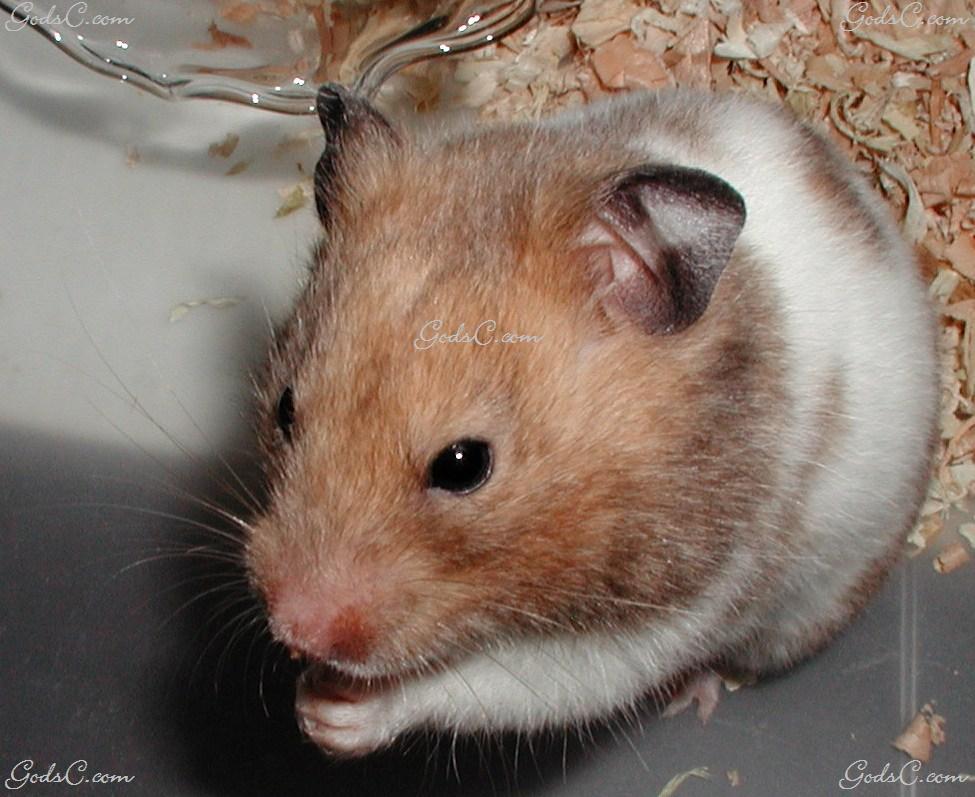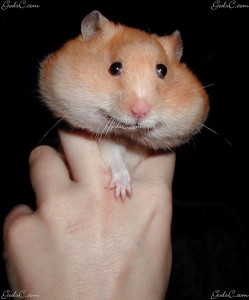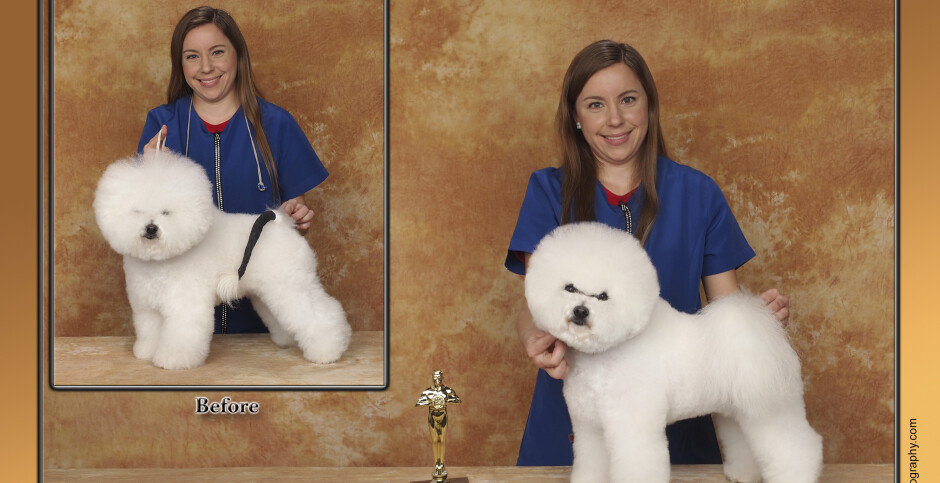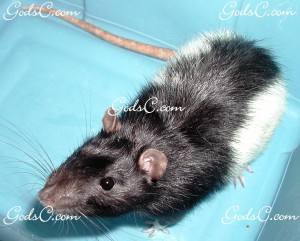Feeding your Rodent
Updated on 4/13/13, Originally posted on 5/26/12

Bible Verse: Genies 1:24 Then God said, “Let the earth bring forth the living creature according to its kind: cattle and creeping thing and beast of the earth, each according to its kind”; and it was so.

Note: the hamster in this photo is NOT being squeezed . She just stuffed her cheeks full with food!
When selecting a dry feed at the store, for your little furry guy, never buy a food based on the appearance of the bag because it looks nice or says it’s a healthy food. Read the ingredients and compare the feed bags with each other. Look at the protein and vitamin levels. A bag of feed may advertise one thing on the front (like high in vitamins) but the ingredients may indicate differently (it may only have a small amount of vitamins). Stay away from food that has corn as the first ingredient. Corn is a cheap filler and is not a healthy food to feed in large amounts. The ingredients are listed from greatest to least, so whatever ingredients come first, there will be more of that ingredient than the other ingredients later on down the list. Try to stay away from feeds with colorful pellets too. Dyes in foods are not the best thing for your pet. Remember that fun shaped and colorful foods are designed to look appealing to the owner so they will buy it. The manufactures make the food look nice so it sells better, but often these kinds of foods are lacking good, health ingredients. If the consumer buys a food because it looks nice, the manufactures say “Why not use cheaper ingredients, who will read what’s in the food so long as it looks pretty? We can make more money by using cheaper, less nutritious ingredients.” How many of you stand in the store and read through all the ingredients on the bags? Do I make my point? Few people read the ingredients.
Talk to your vet who is knowledgeable about rodents in order to learn more about what a healthy diet would be for your specific rodent. Fresh veggies, fruit, and certain kinds of hay can be good for your rodent when fed in proper amounts, again talk to your vet. Sometimes vitamins and minerals should be added to your rodent’s diet if you have been feeding a dry feed that was not very nutritious. Different rodents have different nutritional needs so defiantly talk to your vet. Also always buy a food that is specifically for the type of rodent that you own. For example, Guinea Pigs require more vitamin C than other rodents; they all have different nutritional needs.

